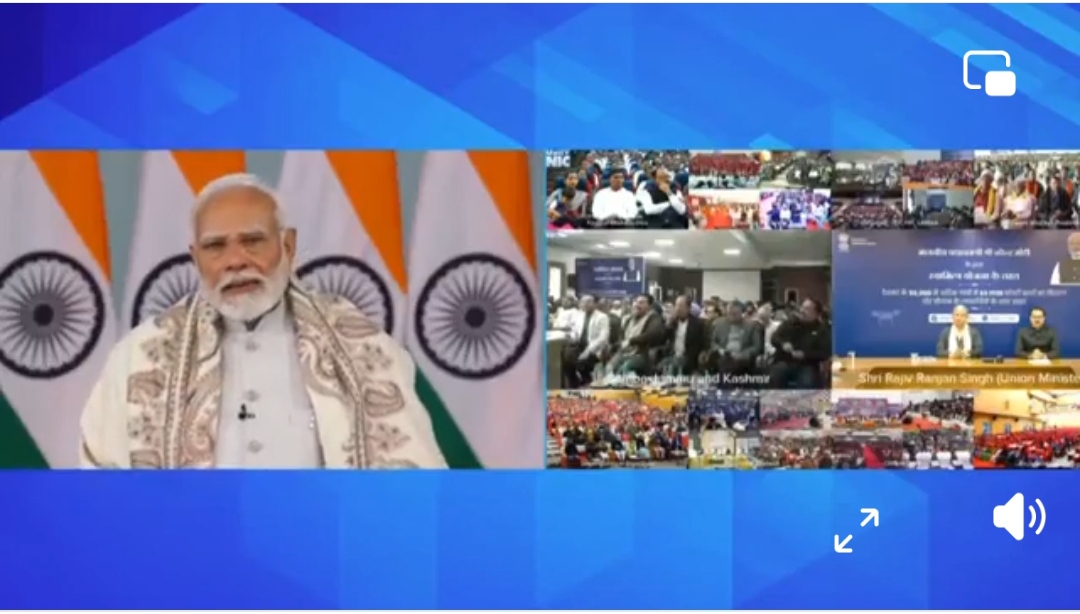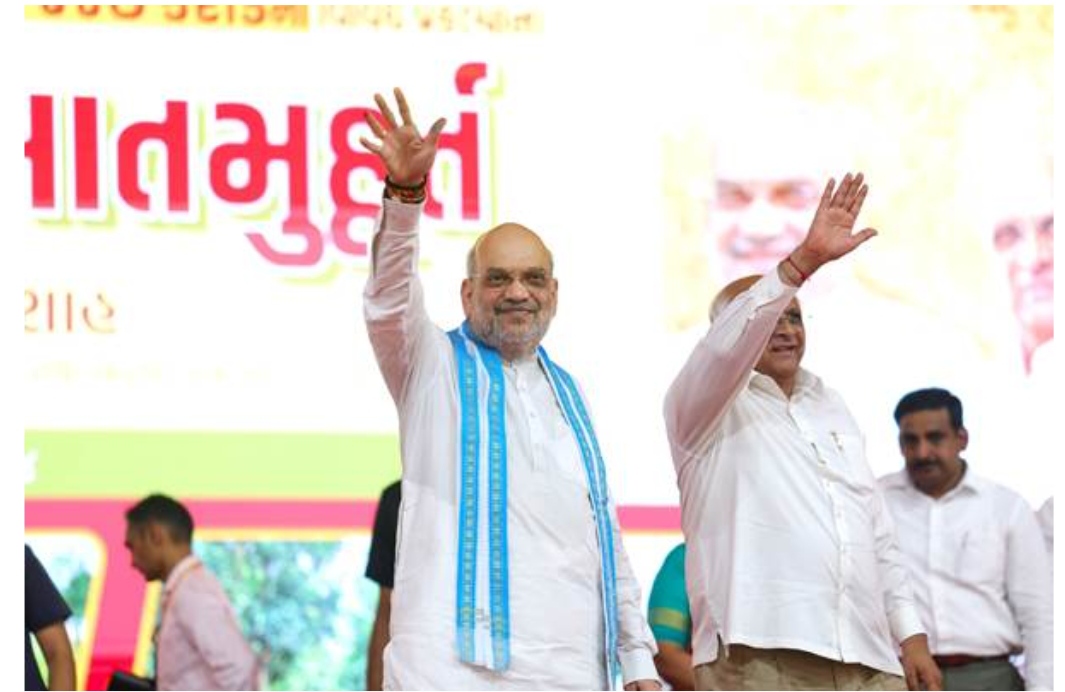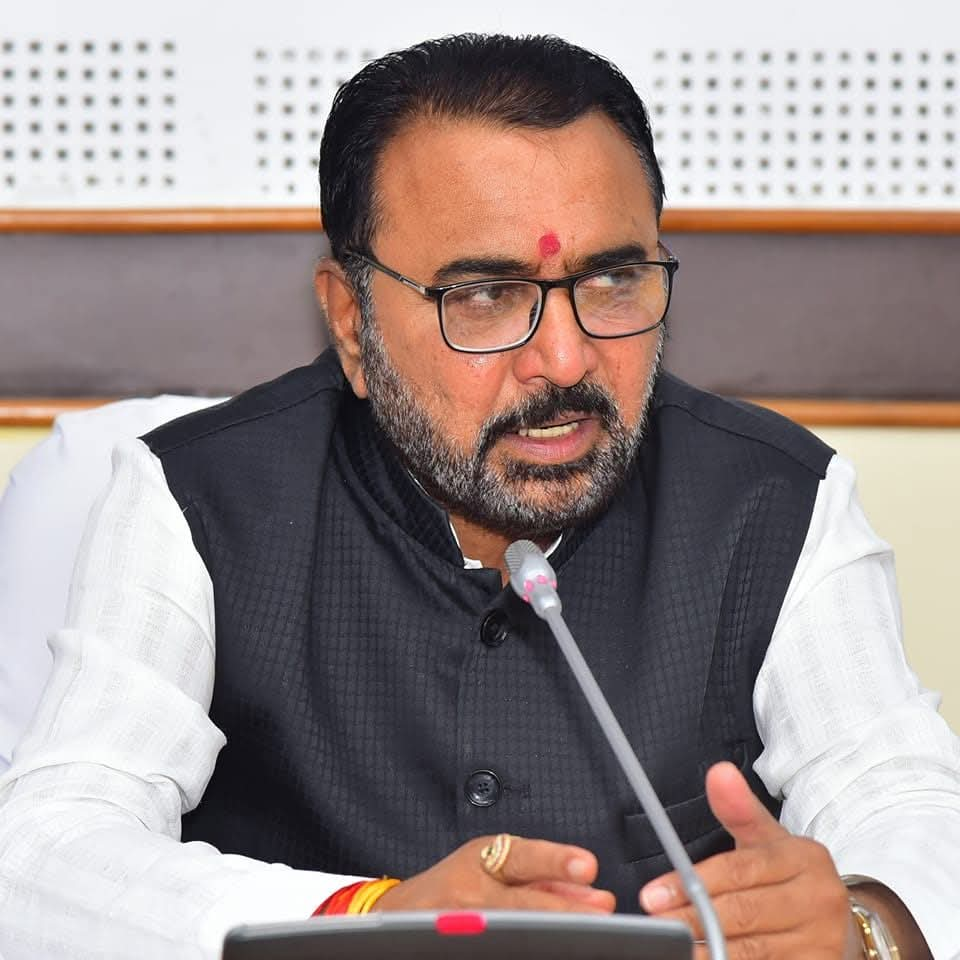Prime Minister Narendra Modi Distributes Over 65 Lakh Property Cards Under SVAMITVA Scheme, Empowering Rural India.
New Delhi:
In a historic event today, Prime Minister Narendra Modi distributed over 65 lakh property cards to residents in more than 50,000 villages across 10 states and 2 Union Territories through a virtual platform. This distribution, part of the government’s flagship SVAMITVA (Survey of Villages Abadi and Mapping with Improvised Technology in Village Areas) scheme, aims to ensure legal property rights for rural citizens and enhance economic opportunities in India’s villages.
Speaking at the event, Prime Minister Modi celebrated the moment as a landmark achievement in empowering rural India, noting that the SVAMITVA scheme had already issued property cards to over 1.5 crore people over the past five years. These cards, also referred to as Gharoni, Property Cards, and Awaasiya Bhumi Patta, are legal documents that validate ownership of land and homes, enabling villagers to access institutional credit and participate in economic activities.
The scheme uses drone technology to map houses and land in villages, providing residents with official property records that previously were often unavailable, leading to land disputes and economic insecurity. “We have decided that with the help of drones, mapping of houses and lands will be done in every village of the country. Village people will be given papers of their residential property,” PM Modi remarked.
The Prime Minister emphasized that these property cards are transformative for rural communities. “Legal property rights are essential to reducing poverty. By providing ownership records, we enable the use of land for securing loans, starting businesses, and boosting the economic standing of rural families,” he said. He highlighted that over 2.25 crore people in rural areas now possess legal documents for their homes, unlocking significant economic potential and securing a better future for millions.
The PM also underlined the importance of property rights in tackling global challenges such as climate change, water scarcity, and economic inequality. He pointed out that in many countries, including India, rural populations have been deprived of property documents, which often results in illegal land occupations and disputes. The introduction of the SVAMITVA scheme aims to resolve these issues and foster sustainable rural development.
In addition to economic benefits, property documentation is also improving village governance. The Prime Minister stated that having accurate maps of village areas will enable precise development planning, reducing wastage and inefficiency in government projects. Furthermore, property rights help resolve long-standing disputes over land ownership, such as identifying Panchayat land and grazing areas, thus empowering local governments economically.
PM Modi also discussed how the scheme is benefitting vulnerable groups, especially Dalit, backward, and tribal families, who have often faced the brunt of land disputes. He emphasized that with legal property rights, these families are now freed from the threat of illegal occupation and prolonged legal battles. He noted that the scheme has been particularly successful in states like Puducherry, Goa, Uttarakhand, and Haryana, where it has reached full saturation.
During the event, the Prime Minister also spoke about other initiatives aimed at rural development. He mentioned that in the past decade, over 2.5 crore families in villages received electricity, more than 10 crore families gained access to toilets, and 10 crore women were provided with gas connections under the Ujjwala scheme. He also highlighted the extensive infrastructure work, including the construction of over 8.25 lakh kilometers of rural roads and the expansion of internet connectivity, which has empowered rural communities.
Furthermore, PM Modi emphasized the pivotal role of women in the development of India. He highlighted that the SVAMITVA scheme has contributed to women’s empowerment by ensuring that property cards list both husband and wife, and that under the PM Awas Yojana, most houses provided to the poor are registered in women’s names. He also pointed out that women are becoming drone pilots through the Namo Drone Didi Yojana, adding to their income and participating in the development process.
As a part of the government’s commitment to rural prosperity, the Prime Minister also highlighted the continuation of the Pradhan Mantri Fasal Bima Yojana, which has already disbursed nearly 2.25 lakh crore rupees in claims to farmers. With other support measures such as affordable fertilizers and direct financial transfers to farmers, the government’s focus remains on uplifting rural India.
The event was attended by several dignitaries, including the Governors of various states, Chief Ministers from states like Uttar Pradesh, Maharashtra, and Madhya Pradesh, and Union Ministers, all participating in the virtual ceremony. The Prime Minister concluded by expressing his confidence that schemes like SVAMITVA will continue to play a crucial role in strengthening rural India and contributing to the country’s overall development.
Background of SVAMITVA Scheme
The SVAMITVA scheme was launched by the Prime Minister in 2020 to provide property rights to rural households through drone surveys. With drone technology, nearly 92% of the target villages have been mapped, and over 2.25 crore property cards have been issued. The scheme aims to reduce property-related disputes, facilitate easier access to bank loans, and aid in better planning of rural development projects.



